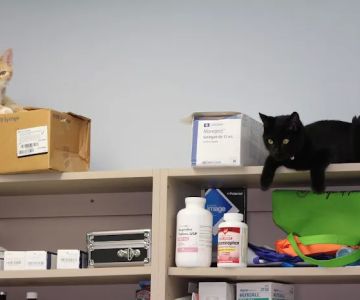What Is a Veterinarian Called? Understanding the Role of Animal Health Professionals
Have you ever wondered what the correct term is for a professional who takes care of animals and ensures their health? Well, if you’re considering a career in animal health or simply curious, the answer is quite simple: they are called veterinarians. However, the world of animal health is far from simple. Veterinarians come in various forms, each specializing in different aspects of animal care. In this article, we will dive deeper into the different roles that veterinarians play and the various job titles within the field.
The Role of a Veterinarian
When most people think of veterinarians, they picture a friendly doctor who takes care of their pets. While this is certainly one role a veterinarian can take, the profession is actually more varied than that. The term "veterinarian" refers to a trained medical professional who diagnoses, treats, and prevents diseases in animals. This includes both domestic animals like cats and dogs as well as wildlife and livestock.
Veterinarians are trained in medical science, animal biology, and various other aspects of animal care. They are equipped to handle a variety of animal health concerns, ranging from routine vaccinations to life-threatening surgeries. In addition, some veterinarians specialize in specific species or types of animals, offering more targeted care to certain populations.
Types of Veterinarians and Their Specializations
While "veterinarian" is the umbrella term, there are several different types of veterinarians, each specializing in particular fields or types of animals. Let’s take a closer look at the different types of veterinarians and their specific roles:
- Small Animal Veterinarians: These veterinarians primarily work with domestic pets such as dogs, cats, birds, and small mammals. They often work in private clinics and handle everything from routine check-ups to surgeries.
- Large Animal Veterinarians: These professionals primarily care for larger animals like horses, cattle, and livestock. They often work in rural areas and may also provide services for farming operations.
- Equine Veterinarians: Specializing in horses, equine veterinarians deal with specific health concerns, such as hoof problems, diseases affecting horses, and injuries from racing or other sports.
- Exotic Animal Veterinarians: These veterinarians focus on less common pets, such as reptiles, birds, amphibians, and small mammals. They typically work in clinics that specialize in exotic animal care.
- Veterinary Pathologists: These specialists focus on diagnosing diseases and health issues through lab tests, often working in laboratories to analyze tissue samples and autopsies.
- Veterinary Surgeons: As the name suggests, these professionals specialize in surgery. They are highly trained to perform complex surgical procedures on animals, ranging from simple spaying to complex orthopedic surgeries.
How Do Veterinarians Make a Difference?
The work of a veterinarian goes beyond just making sure that animals are healthy. They play a crucial role in preventing the spread of diseases that can also affect humans, like rabies, and they help control the spread of zoonotic diseases. In addition, veterinarians contribute to the overall health of the ecosystem by taking care of wildlife, ensuring that animal populations remain balanced, and even helping to prevent the extinction of certain species.
Veterinarians are also instrumental in improving animal welfare. They are often involved in advocacy work and animal rights initiatives, promoting better treatment of animals in various sectors, including agriculture, entertainment, and research.
Becoming a Veterinarian: Education and Training
If you are thinking about becoming a veterinarian, it is essential to understand that the road to becoming one is both long and rigorous. Most veterinarians hold a Doctor of Veterinary Medicine (DVM) degree, which typically takes four years to complete after earning a bachelor’s degree. After that, there are additional years of hands-on clinical training, including internships or residencies in specialized fields.
The journey to becoming a veterinarian also requires passing board exams and obtaining a license to practice. Those who choose to specialize even further, such as in surgery or pathology, must complete additional training and certification.
Why You Should Trust a Veterinarian with Your Pet's Health
When it comes to caring for your beloved pets, it’s essential to trust a qualified professional who understands the complexities of animal health. Veterinarians are not just skilled medical professionals; they are passionate advocates for animal well-being. Whether you have a dog, cat, bird, or exotic pet, a veterinarian is trained to provide the best care possible.
For those who are considering purchasing pet-related products, finding a reputable veterinarian or seeking professional advice from a pet care center can help you ensure you’re making the best decisions for your animal’s health and happiness.
At Dentistry Toothtruth, we offer a variety of pet care products and services to ensure your pets receive the best care. Explore our website for more recommendations and expert tips on how to keep your pets healthy and happy!











